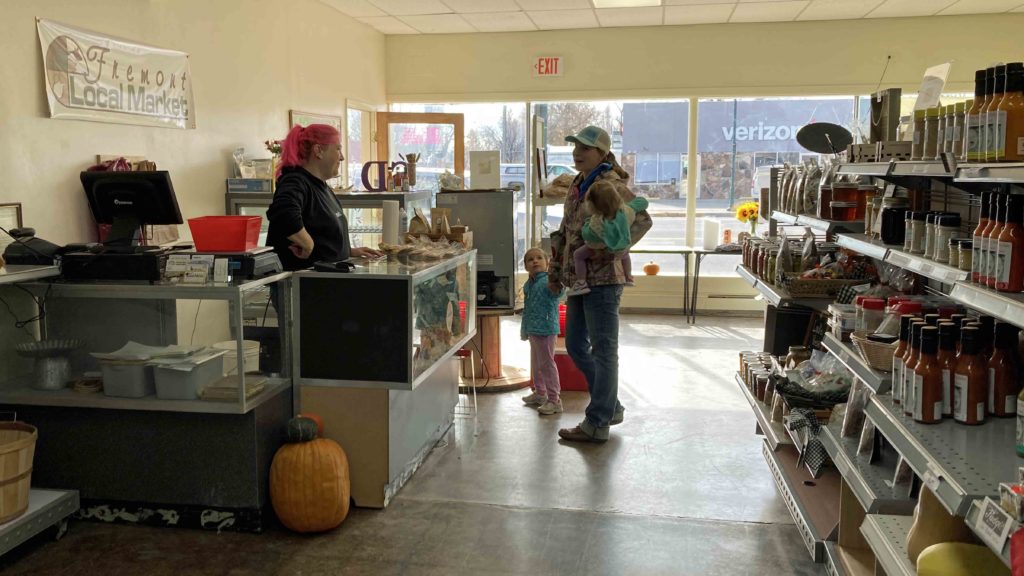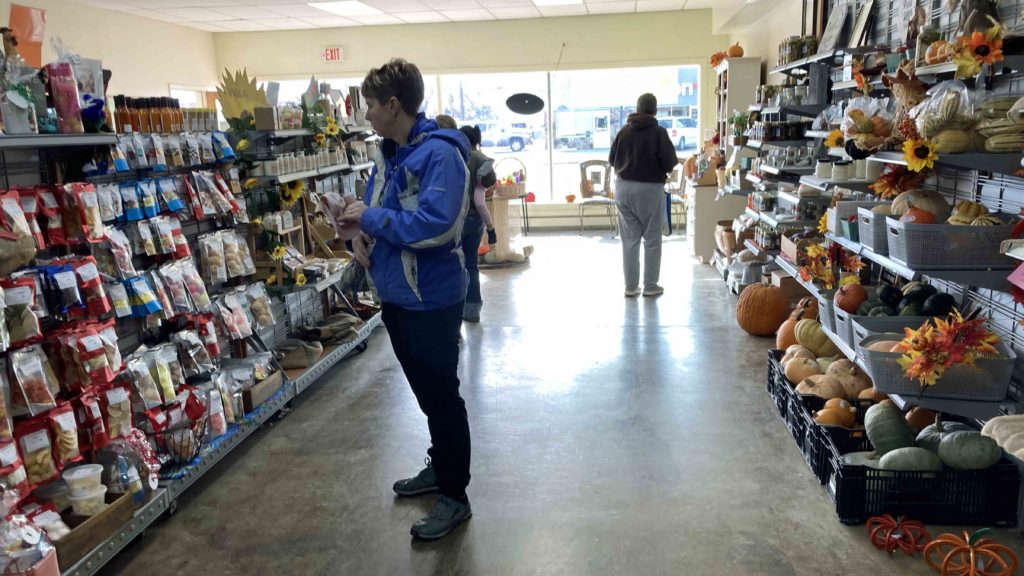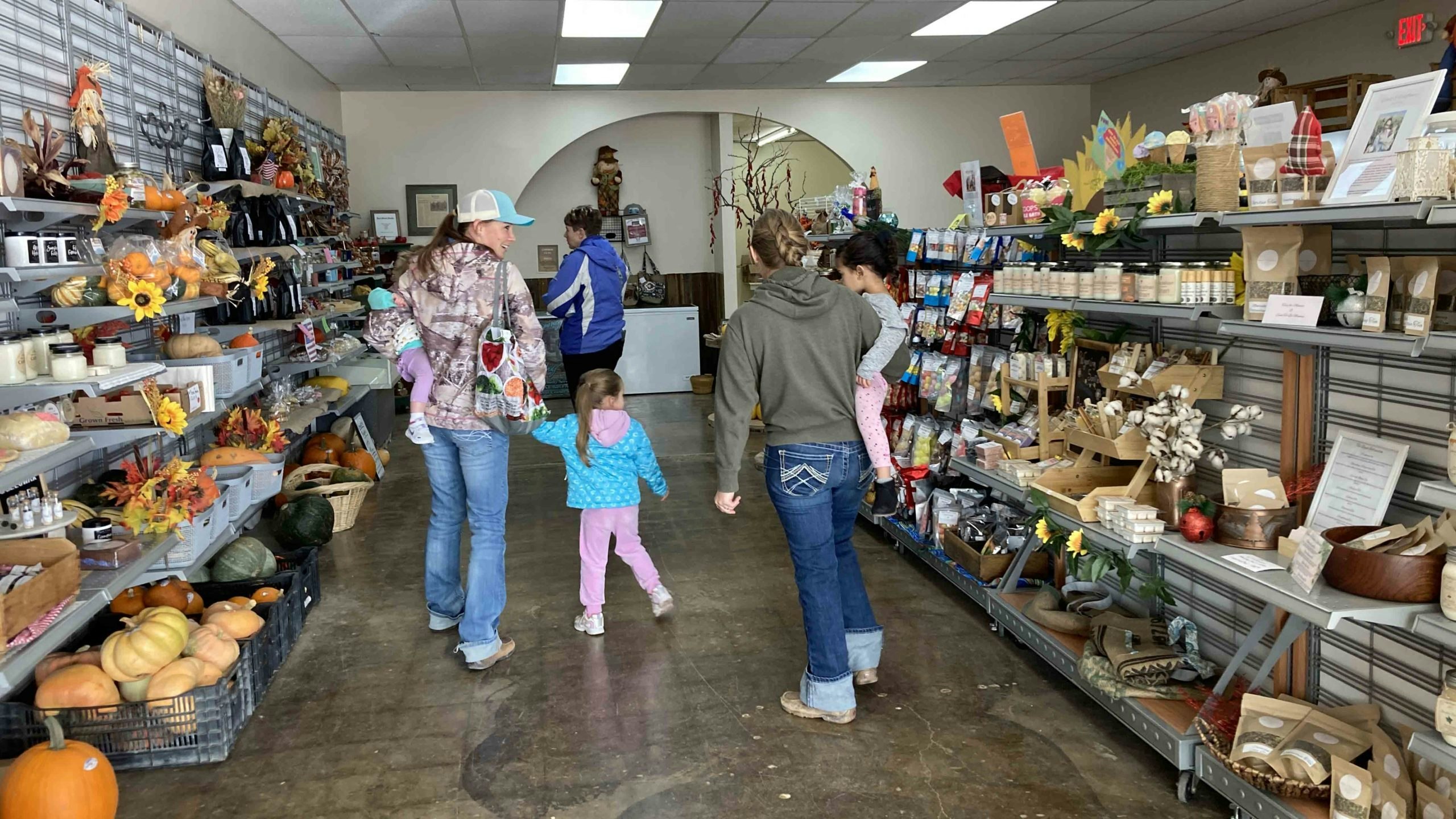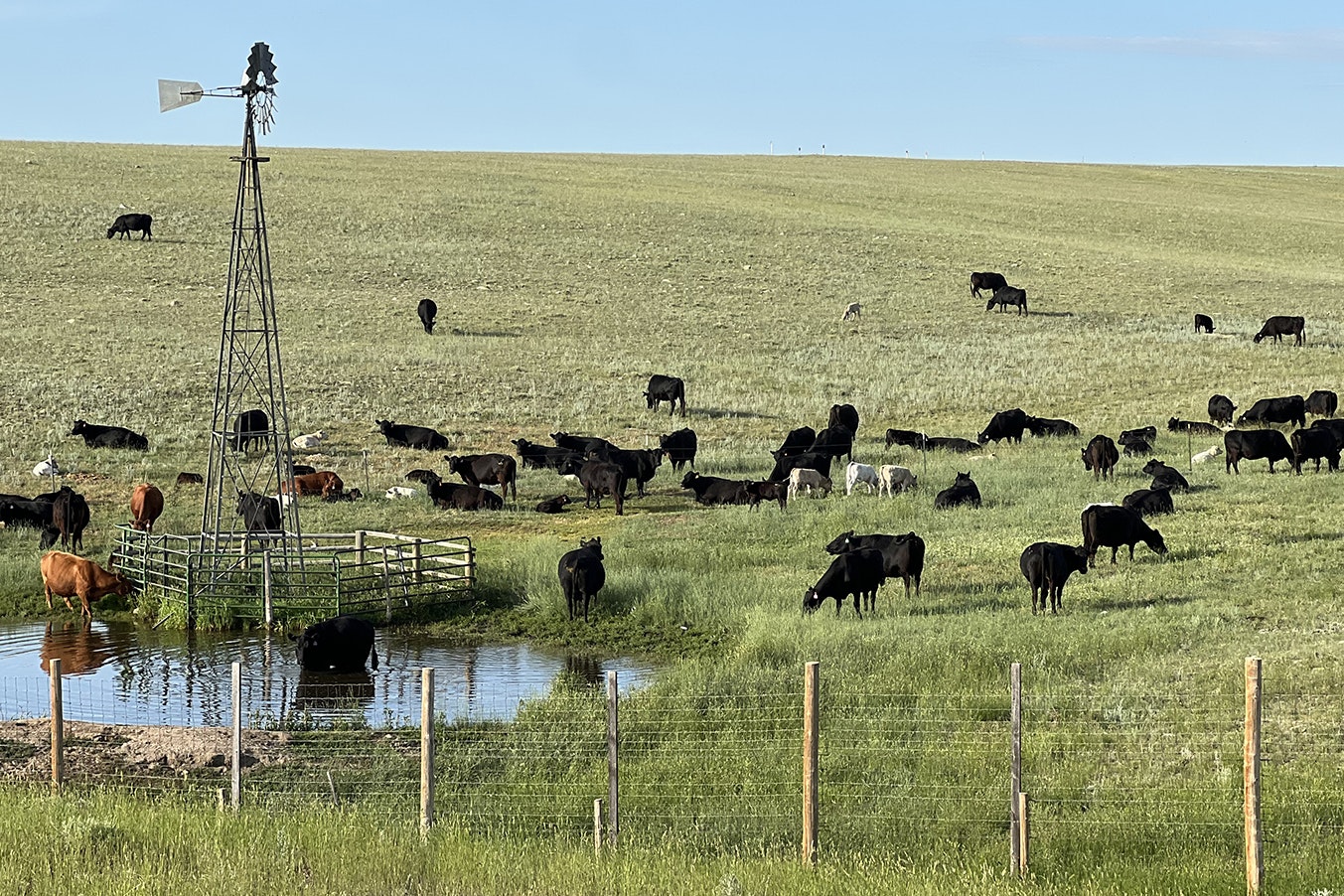The frozen yak meat, dried mushrooms and “Screaming Baby” hot sauce are legal to sell, but the raw milk is a gray area.
It’s been about six weeks since the Fremont Local Market in Riverton opened, giving the town’s burgeoning farmers market culture a brick-and-mortar haven. But because of the unique legal category Wyoming ascribes to home-grown foods, controversy wasn’t far behind.
“All of this is shelf stable,” said the market’s owner, Jessica Lee Fritz, gesturing to canned sauerkraut, hot sauce, candies and dried mushrooms.
But the raw milk, produced on a nearby farm by Tim and Bobbie Thornburg, is not shelf stable, Fritz said.
Representatives from the Wyoming Department of Agriculture are slated to visit the store Monday to discuss whether the milk can be sold at the store.
Honor Pail
The Thornburgs have placed a cash pail in the store’s refrigerator next to their milk, along with their contact information, so that buyers can leave cash in the pail on an honor system when taking milk from the store.
It’s illegal to sell raw milk and other non-shelf-stable foods using a middle man. The law requires the farmer sell the milk himself.
“We’re hoping this can be a workaround for now,” said Fritz, pointing to the honor pail.
She said local Republican state lawmakers Sen. Tim Salazar and Rep. Pepper Ottman have voiced interest in changing the law in the upcoming legislative session that begins in January.
The Thornburgs have been selling their milk to Fremont County residents since 2016, one year after the Food Freedom Act passed. The Food Freedom Act was designed to expand small business and local food production.


No Middle Man
But lawmakers amended the act in 2020 to mandate foods that aren’t shelf stable can’t be sold using a middle man; only the producer may sell those foods.
The Thornburgs make the 20-mile trip to town multiple times a month to meet with customers in parking lots or at farmers markets.
But when Fritz opened her store Oct. 1, the Thornburgs adopted the cash pail method, hoping it would be an acceptable workaround.
It might not be.
“The market is acting as a third-party seller,” said Derek Grant, public information officer for the Wyoming Department of Agriculture.
Grant said the honor pail may not fulfill the law’s requirement of a direct sale between producer and consumer.
“I don’t know about that (system),” he said. “The way we interpret it, and what the statute says, is it has to go directly from a producer to an informed end consumer. By (selling) it in the market, it’s acting as that third-party seller.”
An Inspection
Representatives from the department visited the store earlier this month to inspect the meat products sold there, such as yak meat and beef, and to help the store get licensed to sell its meat products, said Grant.
Fritz said she’s confident the store will soon be licensed to sell all the meat within it.
During that inspection, state employees discovered raw milk being sold, said Grant.
There have been rumors that the department fined the store regarding the meat, but those rumors are unfounded, he said.
“We haven’t issued any fines, and we haven’t for quite some time,” Grant said. “Our goal is to make sure people are operating under the statute and rule, and it’s safe for producers and consumers alike.”


Which Cow, Which Milking
Tim Thornburg believes the law as it now exists is a perversion of its original intent. He said when former Rep. Tyler Lindholm, R-Sundance, penned the Food Freedom Act in 2015, it was more permissive.
Thornburg said there have been no instances of foodborne illnesses pertaining to locally-sold foods in Wyoming since the act’s passage. The Wyoming Department of Health was unable to confirm that statement Saturday.
Thornburg said his product has more accountability backing it, in some ways, than grocery-store milk.
“On our labeling, when we label every jar of milk, it’s got the cow that milk came out of, the date and whether it was an evening or a morning milking,” he said. “And we teach our customers what that label means, and if they’ve had an issue with their milk, we want to know – tell us what that tag says. But we’ve yet to have an issue.”
Thornburg said it is not feasible for him or his wife Bobbie to remain at Fremont Local Market all day to sell milk directly.
“Well, my wife has a job and I have a farm,” he said, adding that running the farm is a near-constant task.
Thornburg said he hopes the public will “put some pressure on elected officials” to make the Food Freedom Act more permissive.
‘Now Is The Time’
Riverton-area farmer and food-freedom advocate Steve Doyle said he regrets that the Thornburgs’ honor pail might not pass legal scrutiny.
“To be honest, we’re pushing for just a little more than the act provides,” he said.
Some of the meat and garden vegetables sold in the store are from Doyle’s farm.
He said he used to drive tugboats hauling grain “into places like Jamaica” and found that small farms in Mexico and South America were becoming unprofitable.
“These huge agriculture behemoths and juggernauts were just wiping out these small farms,” said Doyle.
Upon returning home to Wyoming, Doyle said he had the same sense all over again. So he got active in 2010 and saw the Food Freedom Act passed in 2015. Doyle said the act represents a bastion for food freedom in the country.
All it lacks, he added, is a provision to involve a middle man. Without that, marketing local foods still isn’t economically viable for most producers, Doyle said.
“With all that is going on in the world, now is the time – no, the time was 10 years ago – to start building alternative food supply sources,” said Doyle. “We should be able to grow our own food, and we should have the choices of what food we want to eat and what food to serve to our families.”





